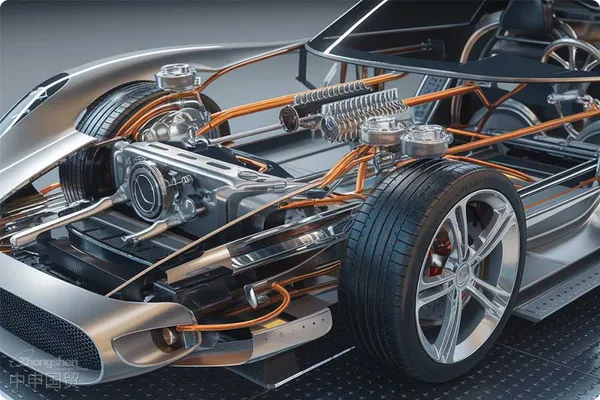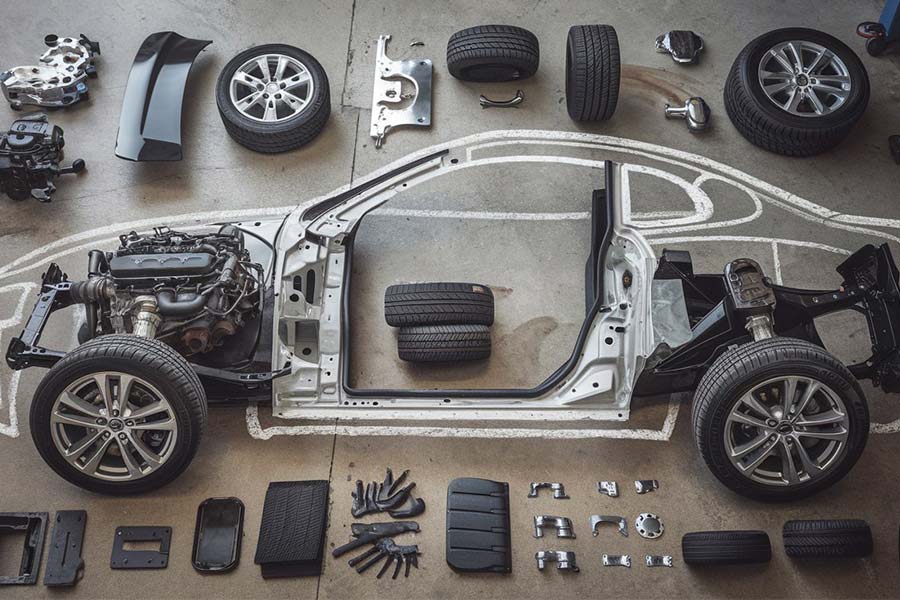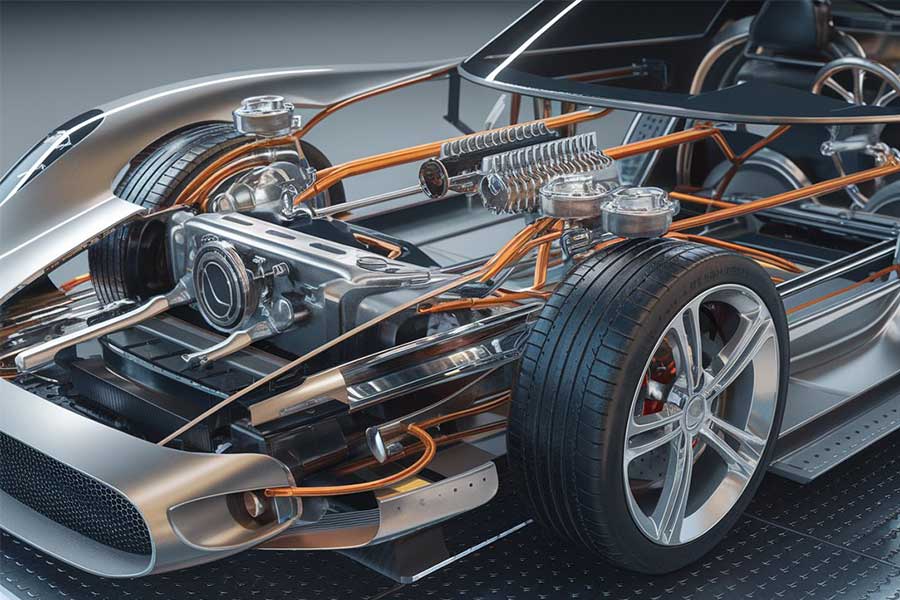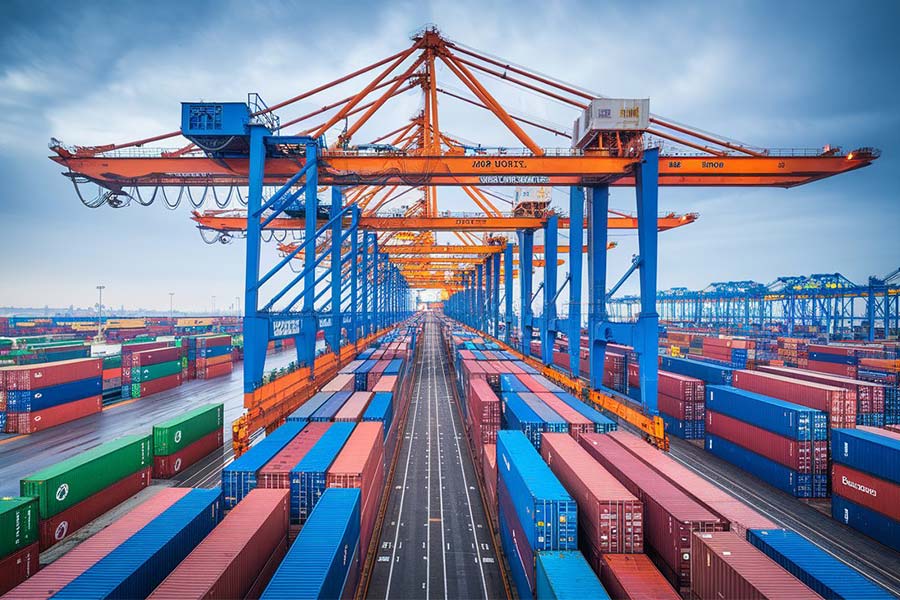- Shanghai Zhongshen International Trade Co., Ltd. - Two decades of trade agency expertise.
- Service Hotline: 139 1787 2118

Professional Interpretation: Half ShaftAutomotive partsImport RepresentationA Comprehensive Guide to Overseas Procurement Processes
——20 years of experienceforeign tradeIn-depth Analysis by the Manager
Against the backdrop of the booming global automotive aftermarket, the import demand for drive shafts, a core component of vehicle power transmission, continues to rise. However, overseas procurement involves complex supply chain management, quality control, and compliance risks. As a foreign trade import professional with 20 years of experience,Export RepresentationService Expert: This article will systematically analyze the import agency process for half-shaft automotive parts, helping enterprises avoid risks and enhance procurement efficiency.
I. Current Status and Procurement Pain Points of the Half-Shaft Accessories Import Market
1. Analysis of the Global Supply Chain Landscape
- Distribution of Core Production Areas: Traditional automotive powerhouses such as Germany, Japan, and the U.S. dominate the market with high-precision OEM parts, while Southeast Asia (e.g., Thailand, India) and Eastern Europe (e.g., Poland, Turkey) leverage cost advantages to capture the aftermarket parts segment.
- Demand drivers: ChinaNew energyThe explosive growth of the automobile market and the expansion of domestic maintenance and replacement demand have driven an average annual increase of 12% in half-shaft imports (according to 2023 data from the General Administration of Customs).
2. Typical pain points in corporate self-procurement
- Quality risks: The qualifications of overseas suppliers vary greatly, making it easy to encounter issues such as substandard materials or mismatched specifications;
- High logistics costs: The accessories are bulky and heavy, and improper selection of international transportation solutions will lead to a surge in costs;
- Customs clearance delays: Incorrect HS code classification,It is recommended to verify through the following methods:Issues such as unclear or missing declarations may lead to the risk of cargo detention;
- Exchange Rate and Payment Risks: In long-term procurement, professional control is required for exchange rate fluctuations and the security of advance payments.
II. Core Value of Import Agency Services for Half-Shaft Accessories
Professional agency services can provide enterprises with a one-stop solution from "supplier screening" to "terminal delivery":
1. Source control: Supplier screening and factory inspection
- Database matching: Based on procurement requirements (OEM/aftermarket parts, vehicle model compatibility, budget), screen compliant suppliers from the global cooperation database;
- Technical factory inspection: Entrust a third-party organization to test the material of the half-shaft (such as the hardness of 40CrMo alloy steel), dynamic balance performance, and anti-rust process to prevent "passing off inferior products as high-quality ones";
- Contract Risk Avoidance: Protect corporate rights and interests through "back-to-back" payment terms and quality claim agreements.
2. International LogisticsSolution optimization
- Cost Comparison Model: Select based on cargo volumeMaritime TransportationLCL/FCL,China-Europe Railway ExpressorAir TransportationEmergency replenishment;
- Custom packaging:A reinforced wooden crate was designed to accommodate the deformation-prone characteristics of the half-shaft, thereby reducing the transportation damage rate;
- : Require the agent to purchase liability insurance of at least 5 million yuan:Insure against "All Risks" to transfer the risks of cargo damage and loss.
3. Customs Clearance Compliance and Timeliness Assurance
- Accurate Classification: The HS code for half-shaft accessories is generally 8708.99 (other vehicle parts), and it is necessary to confirm whether it involves specific vehicle models and uses.3CCertification exemption;
- Pre - review of documents: Verify the certificate of origin, quality inspection report (e.g., ISO 9001), and brand authorization letter in advance;
- Port collaboration: Reduce customs clearance time to within 48 hours through the "advance declaration" and "two-step declaration" models.
III. Practical Case: Mitigation of Procurement Risks in an Auto Repair Chain Enterprise
Adopted the partial shipment + overseas - warehouse transfer mode to meet the customers demand for partial pick - up in advance.: A company needs to import 500 sets of aftermarket axle shafts from Turkey with a limited budget but requires delivery within 6 weeks.
Challenges: The supplier failed to provide material certificates, shipping schedules are tight, and domestic port inspection rates have increased.
Solutions:
- The agent conducted on-site inspection through local cooperative institutions and confirmed that the material complies with the SAE J484 standard;
- Adopting the "sea freight + Central Asia land transport" batch shipping solution, it saves 15% on freight costs and delivers 3 days earlier;
- Attach a third-party test report during pre-declaration, and the goods will be released directly after customs inspection.
The total cost was reduced by 12%, and the order was delivered on time.: Procurement costs reduced by 8%, and after-sales failure rate reduced to zero.
IV. Future Trends: Digitalization and Compliance Enhancement
1.Intelligent Procurement System: By integrating overseas supplier inventory data through ERP, dynamic price comparison and automatic replenishment are achieved;
2.Blockchain Traceability: The entire chain of information from production to delivery is recorded on the blockchain, resolving disputes over the authenticity of parts.
3.ESG compliance requirements: The EU Carbon Border Adjustment Mechanism (CBAM) compels supply chains to go green, requiring attention to suppliers' environmental qualifications.
V. Conclusion
The import of axle shaft components is not merely a simple trade activity, but also a competition in supply chain resource integration. Opting for professional agency services can help businesses focus on their core operations, transforming complex international procurement into a definitive advantage. Should you require a customized axle shaft procurement plan or access to a global supplier whitelist, please feel free to contact us.
Authors Introduction:
The author of this article has extensive experience in foreign trade.import and exportWith 20 years of experience in the agency field, we have served over 500 automotive parts enterprises, specializing in procurement compliance strategies for the EU, North America, and the "Belt and Road" markets. We excel in providing systematic solutions to help businesses reduce costs and enhance efficiency.
Originality Statement: The content of this article is based on publicly available industry data and summarized practical experience. Reproduction requires authorization and must indicate the source.
Related Recommendations
? 2025. All Rights Reserved. Shanghai ICP No. 2023007705-2  PSB Record: Shanghai No.31011502009912
PSB Record: Shanghai No.31011502009912









